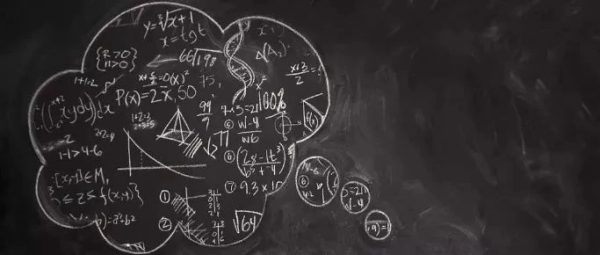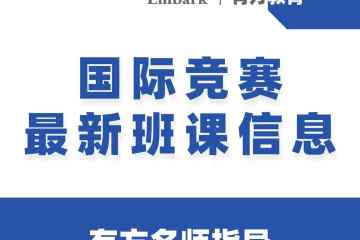中国人的数学为什么好

At my school, there are many Chinese and other Asians. They all seem to be great at math.I always feel guilty and stupid for getting a lower grade. I do not want to be racist. I am just curious to know if all Chinese are really good at maths.
我们学校有很多中国人和其他亚洲人,他们似乎都很擅长数学。而我的数学成绩就很菜,这经常让我羞愧不已,甚至觉得自己很笨。我无意于拿种族说事儿,仅仅是好奇,是不是所有中国人真的都很擅长数学?
Quora:中国人的数学好不好?
No, but they have a small advantage that can turn into a big one: their language.
不是的,他们只是有一个可以转变为更大优势的小优势:语言。
In Malcolm Gladwell’s Outliers, the Story of Success, he discusses how a small advantage at the start can lead to a huge one down the line.
在马尔科姆的《异类:不一样的成功启示录》一书中,作者论述了一个一开始的小优势是如何逐渐演变为一个决定性大优势的。
The kid born right after the hockey cut-off date will be a little bit older, and therefore bigger, than a lot of his peers.
加拿大挑选曲棍球队员的卡线年龄是每年的1月1日,因此恰好于此日期之后出生的孩子要比同龄人的体格和年龄稍大。
Eventually, that small advantage means that he makes the team more often, gets selected into higher and higher leagues and teams, until you end up with a majority of Canadian hockey players born in the first few months of the year.
这个小小的优势意味着他们会有更多机会组队打球,入选越来越高级别的联赛和队伍,这点也在大部分加拿大曲棍球运动员都出生在每年头几个月的事实中得到了验证。
A small advantage at the start can compound, until it becomes a crushing one.
一点小小的先发优势可能并不起眼,直至最终演变为压倒性的优势。
Now when it comes to math, the Chinese language is RIDICULOUSLY logical. And I’m comparing to the other end of the spectrum, France, where the word for 97 is “four-twenty-seventeen”. For China, 97 is 九十七 - literally nine, ten, seven - nine tens and a seven.
现在,让我们再谈谈数学,汉语的逻辑性是极其“变态的”!我们将之与不太讲究逻辑的另一朵奇葩——法语做下比较,在法语中97要写成“四-二十-十七”,而在汉语中97只需写成简单的“九十七”——也就是九,十,七——九个十和一个七。
583 is five, hundred, eight, ten, three. Five hundreds, eight tens, and three. And so on and so forth (until you get to 100,000 where it gets slightly more complicated)
583就是“五,百,八,十,三”,以此类推(数到十万才会显得稍微复杂一点)。
You only need to know 13 characters to count up to 99,999! And people say Chinese is hard ^^
你只需掌握十三个汉字就能数到99999!竟然还有人抱怨汉语难学!
Understanding how the numbers work suddenly becomes a lot easier - it’s IN THE LANGUAGE. Chinese provides the explanation.
理解了数字是如何运作的就会大大降低学习数学的难度——而汉语本身的内在逻辑就提供了这种解释。
And this is even more apparent when it comes to fractions. Five seventeenths? Eight twelfths? How many kids have started to cry because they didn’t understand fractions?
说到数学中的分数,汉语的优势就更显露无疑了。五-第十七?八-第十二?(译注:上述两句是英文中5/17和8/20的表达方式)。有多少国外的孩子因搞不懂分数而头痛不已?
Meanwhile, in Chinese 8/12ths would be 十二分之八 - from 12 pieces, take eight. Again, the language itself makes it easier to understand a complex mathematical concept.
与此同时汉语中8/12的表达方式就是“十二分之八”——在 12份之中选取8份。汉语本身的表达方式让理解一个复杂的数学概念变得简单的事实再次得到了验证。
Now I’m not saying that all Chinese people are great at math. But I am saying that, perhaps, the logical nature of their language allows them to have a small step up at the start.
我不是在说所有的中国人都很擅长数学。但得益于汉语本身的逻辑性,中国人在数学学习上捷足先登了。
And that can compound into incredible results.
最终这个小优势为造就一个不可思议的结果埋下了种子。
Edit: OK, after fifty million comments of: “but I’m Chinese and I’m not good at math” or “But [insert nationality] is great at math” .let me attempt to clarify this post.
补充:好吧,很多人评论说“我是中国人但我并不擅长数学”或“某个国家的人就很擅长数学”。我来尝试澄清下这个说法。
This does not mean EVERY SINGLE CHINESE automatically becomes great at math. Or the best at math. All it does is give a small helping factor at the start. On the scale of an average population, I would say this would translate into a slight boost in the AVERAGE level. Again, not talking about extremes here.
这里并不是说每个中国人不费吹灰之力就可以学好数学,或是能达到最高水平。汉语的优势只是在数学入门阶段提供一个小小的助推因素。在大规模人口的水平上,我敢说中国人的数学平均水平是略微领先的。重申一下,这里不是在谈论极端情况。
Obviously, this is only one of many factors at play. The fact that SE Asian immigrants tend to adopt cultural codes of success and pass them on to their children (think the piano and the violin) definitely plays a role.
很显然,这只是众多推动因素之中的一个。如我们知道的东南亚移民倾向于吸取成功的文化基并将之传承(想想他们对学习钢琴和小提琴的热忱)。
Cultural choices also play - the French EXCEL at fundamental math, because math is seen as the royal choice when it comes to school, and compared to Anglo-Saxons, we put a higher value on fundamental, but not immediately applicable, research. The average level of the math population is not necessarily higher though - but there’s a very high variance.
不同文化的选择也发挥了作用——法国人在基础数学上成就卓越,因为在学校里学习数学被认为是神圣的选择,与盎格鲁-撒克逊人相比法国人更重视基础性的东西,但相比之下他们在数学的使用和研究上就捉襟见肘了。尽管如此,法国人的数学平均水平却并不达标,而且两极分化严重。
Finally - the number of characters is for oral, not written. In English we have eleven, twelve, thirteen, …, nineteen, twenty, thirty, … ninety - that are additional levels of complexity and completely non-intuitive (compared to Chinese).
最后我想说——数字字符是用来口头表达的而不是书写的。英语中我们用“eleven, twelve, thirteen, …, nineteen, twenty, thirty, … ninety ”——与汉语相比,这种表达方式显得格外复杂且不直观。

